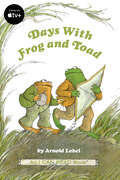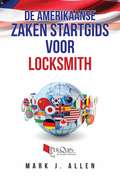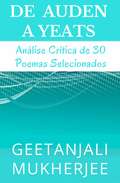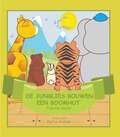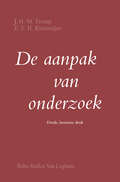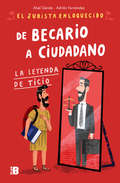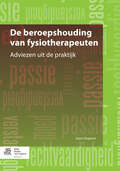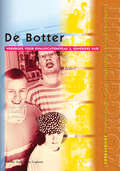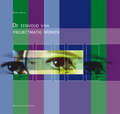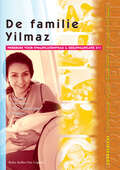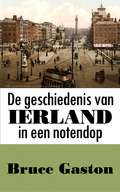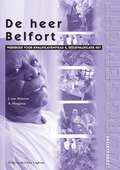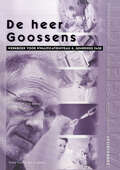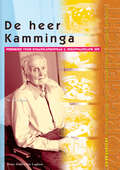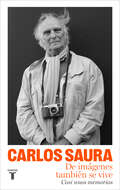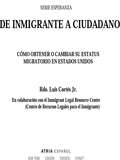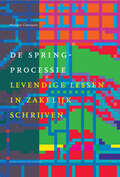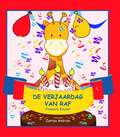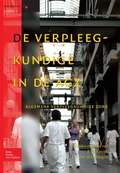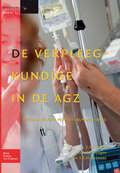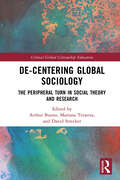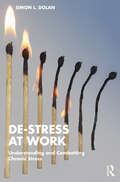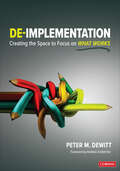- Table View
- List View
Days with Frog and Toad: Frog And Toad Are Friends, Frog And Toad Together, Days With Frog And Toad, Frog And Toad All Year (I Can Read Level 2)
by Arnold LobelFrog and Toad enjoy spending their days together. They fly kites, celebrate Toad's birthday, and share the shivers when Frog tells a scary story. Most of all, they have fun together—every day of the year.Days with Frog and Toad is a Level Two I Can Read book, geared for kids who read on their own but still need a little help. Whether shared at home or in a classroom, the engaging stories, longer sentences, and language play of Level Two books are proven to help kids take their next steps toward reading success.The classic Frog and Toad stories by Arnold Lobel have won numerous awards and honors, including a Newbery Honor (Frog and Toad Together), a Caldecott Honor (Frog and Toad Are Friends), ALA Notable Children’s Book, Fanfare Honor List (The Horn Book), School Library Journal Best Children’s Book, and Library of Congress Children’s Book.
De Amerikaanse Zaken Startgids Voor LOCKSMITH
by Mark J. AllenOnze nuchtere, gemakkelijk toe te passen, stapsgewijze handleidingen voor het starten van een eigen bedrijf, zijn de snelste en gemakkelijkste manier om volledig operationeel te maken. We hoeven geen leer je hoe je een slotenmaker... maar bieden wij u de beste adviezen krijgen over hoe u uw nieuwe bedrijf… vanaf vandaag!
De Auden a Yeats: Análise Crítica de 30 Poemas Selecionados
by Geetanjali Mukherjee Allan Felipe Rocha PenoniEste livro é uma referência pronta para alunos de Literatura Inglesa que querem ajuda para navegar pela poesia de alguns dos maiores poetas do final do século XIX e do século XX. O livro contém análises críticas profundas de 30 poemas selecionados das obras de W.H. Auden, Ted Hughes, John Keats, Philip Larkin e W.B. Yeats. Uma coletânia de 30 ensaios, o livro objetiva ajudar que alunos de literatura tenham uma visão geral da vida e do trabalho de casa poeta representado, assim como entender os poemas discutidos com suficiente profundidade. CARACTERÍSTICAS DO LIVRO * Uma seção sobre a vida e o histórico de cada poeta, para melhor entender as influências em sua poesia, e ter uma visão do contexto dos poemas selecionados * Uma explanação simples de cada poema * Explanações dos temas, motivos e símbolos usados nos poemas * Um ensaio dedicado para cada poema selecionado, analisando-os para o benefício do estudante de literatura * Perguntas curtas para que os alunos pensem sobre os temas mais profundos dos poemas Este é um guia inestimável para de literatura inglesa na escola ou universidade, ou para qualquer um que deseje obter uma compreensão mais apurada de alguns dos poemas mais reconhecidos do último século. Este livro funciona melhor como um guia de estudos, e não deve substituir a leitura de fato dos poemas (POEMAS NÃO INCLUSOS). Alguns poemas discutidos: * W.H. Auden - Refugee Blues * Ted Hughes - Crow Tyrannosaurus * Philip Larkin - The Whitsun Weddings * John Keats - To Autumn * W.B. Yeats - The Second Coming
De Junglies bouwen een boomhut
by Francois Keyser Debbie VerschuerenIn dit verhaal van "De Junglies" ontdekken onze vrienden dat er veel meer plekken in de wereld bestaan weg van huis, die ze graag zouden zien. Wanneer ze zich echter realiseren dat ze niet buiten hun huis in de jungle kunnen reizen, zoeken ze een manier om nieuwe plekken te ontdekken. Zo leren ze dat we soms de dingen vanuit een ander perspectief moeten bekijken om te waarderen wat we al hebben.
De Syrische crisis Verleden, heden en toekomst
by Shahid Hussain RajaThe Syrian Crises: Past, Present and Future door Shahid Hussain Raja, Omar Hayat Raja Historische achtergrond van de huidige Syrische crises, de huidige en toekomstige scenario's De Syrische crises: verleden, heden en toekomst Legt de aard en oorsprong van de huidige Syrische crises uit in de bredere achtergrond van de geopolitieke en andere breuklijnen van het Midden-Oosten. Vervolgens worden de belangen van de verschillende mondiale en regionale mogendheden opgesomd en hoe zij reageren op de snel evoluerende situatie, eindigt met mogelijke resultaten en stelt de beste weg voorwaarts voor. Wat in Syrië gebeurt, is een momentopname van wat in het Midden-Oosten gebeurt als een geheel dat door bepaalde historische erfenis, zijn geostrategische locatie, overvloedig hulpbronnen en regionale/mondiale machtspolitiek in beroering voor de laatste halve eeuw of zo is geweest. Deze crises zijn verergerd door de aanval van de Arabische Lente, de Iraanse ambities voor nucleaire gelijkheid met Israël en de hulpbronnen gevecht. In de bredere achtergrond van snel veranderende regionale afstemmingen, zijn er verschillende conflicten en oorlogen gaande in het Midden-Oosten met diepgewortelde oorzaken die ernstige gevolgen hebben voor de regionale stabiliteit en mondiale veiligheid. Deze korte boek capsule begint met het uitleggen van de achtergrond van de algemene crises die het Midden-Oosten overspoelen, hun historische wortels, verschillende dimensies en de soorten conflicten en oorlogen die gaande zijn in de regio. Hoofdstuk drie legt het korte sociaaleconomische en politieke profiel van Syrië uit zonder te begrijpen dat we de grondrealiteit en historische context van de huidige Syrische crises niet kunnen waarderen. Vervolgens wordt de oorsprong van de huidige crises opgespoord en worden de respectieve belangen van de drie wereldmachten, namelijk de Verenigde Staten van Amerika, China en Rusland, in de regio in het algemeen en in deze crises in het bijzonde
De aanpak van onderzoek
by E.F.H. Rietmeyer J.H.M. TrompEen leidraad waarmee eenvoudig emperisch onderzoek kan worden gedaan. Daarnaast kan het gebruikt worden om onderzoekingen die door anderen zijn uitgevoerd, te beoordelen. Het maakt de studenten in het HBO duidelijk welke (achtereenvolgende) stappen gezet moeten worden bij de opzet, uitvoering en uitwerking van het onderzoek. Op systematische wijze wordt aangegeven hoe de globale onderzoeksvraag omgezet wordt in een specifieke vraag en hoe deze vervolgens vertaald wordt in hypothesen. De volgende onderdelen worden uitgewerkt: Globale omschrijving van de onderzoeksvraag/het verzamelen van informatie rond de onderzoeksvraag/soorten onderzoek/definitieve omschrijving van de onderzoeksvraag/verzameling van gegevens/bepalen van de steekproef/schrijven van het onderzoeksverslag.
De becario a ciudadano: La leyenda de Ticio (El Jurista Enloquecido #Volumen)
by Abel Gende Adrián FernándezPreparad vuestros cuadernos, fotocopias y subrayadores. Jurista Enloquecido ha venido a contarnos una aventura increíble En su afán por recopilar las hazañas heroicas y las leyendas jurídicas más relevantes del sector, Jurista Enloquecido se pasea sin descanso por las facultades de Derecho y los tribunales de justicia en una búsqueda constante de testimonios que sirvan para la creación de una epopeya jurídica a la altura de La Ilíada, El cantar de mio Cid o La Divina Comedia. En este nuevo libro, Jurista Enloquecido nos relata la extraordinaria vida de Ticio, un esclavo-becario que tendrá que someterse a varias pruebas y retos divertidos para lograr su gran sueño: convertirse en un gran jurista.
De beroepshouding van fysiotherapeuten: Adviezen uit de praktijk
by Joost DupontHoe gaat een fysiotherapeut om met patiënten die niet willen oefenen? Wat betekent 'eerlijk zijn' voor fysiotherapeuten? Hoe reageer je op patiënten die vooral gemasseerd willen worden? Mag een fysiotherapeut vriendschap sluiten met een patiënt? Hoe gaat een fysiotherapeut om met onsympathieke patiënten en bestaan die eigenlijk wel? Wat kan een fysiotherapeut doen voor patiënten met psychosociale problemen? Wat wordt er van een stagiair verwacht en wat van een stagebegeleider? Dit boek bevat antwoorden uit interviews met circa vierhonderd fysiotherapeuten op deze en vele andere vragen over een professionele beroepshouding. Soms zijn dat tegenstrijdige antwoorden, soms verrassende. De visies van fysiotherapeuten op hun beroep zijn zo neutraal mogelijk weergegeven - de beslissing over 'wie er gelijk heeft' zullen (aankomende) fysiotherapeuten als reflectieve beroepsbeoefenaars zelf moeten maken. Op die manier groeit hun eigen visie op de beroepshouding. Dit boek is primair bedoeld om studenten fysiotherapie te stimuleren bij het ontwikkelen van een adequate beroepshouding. Het boek kan bijvoorbeeld ingezet worden tijdens bijeenkomsten rond reflectie, intervisie en ethiek. En verder tijdens de gehele opleiding wanneer een bepaald thema voor de student actueel wordt. Het boek is breed inzetbaar doordat er niet is gekozen voor een specifieke reflecteermethode of visie op ethiek. Als voorbeeld is in een aparte bijlage een benadering van professionaliteit vanuit de deugdethiek beschreven. Daarnaast komt dit boek goed van pas voor fysiotherapeuten die kennis willen nemen van adviezen van collega's bij kwesties die zich in de praktijk steeds weer voordoen. De adviezen uit het werkveld kunnen hen sterken in hun eigen keuzes of wellicht op nieuwe ideeën brengen.
De botter
by Nicolien Van Halem S. Borkus Mevrouw L. PetersenZorgcategorie: Verstandelijk gehandicapten Setting: Leefgroep Korte inhoud: De leefgroep De Botter staat in de instelling bekend als een 'dynamische' groep. De groepsleden zijn jong volwassenen en het ontwikkelingsniveau varieert van midden tot hoog niveau. Het is een gemengde groep en bestaat, na de verhuizing van Rebecca, uit één meisje en vijf jongens. Naast epilepsie doen zich communicatie en gedragsproblemen voor, waardoor het accent in de zorg komt te liggen op intensieve begeleiding.
De eenvoud van projectmatig werken
by Michiel SpanjerIn onderwijssituaties en ook in de beroepspraktijk is het projectmatig werken de laatste jaren enorm toegenomen. Al snel wordt van mensen verwacht dat zij over enige kennis en ervaring met betrekking tot projectmatig werken beschikken. Dit boek is bijzonder geschikt voor zowel beroepsbeoefenaars als studenten die nog maar weinig over projectmatig werken weten. Het is niet alleen geschikt vanwege de bondig gehouden, kernachtige inhoud, maar ook door de zeer toegankelijke wijze waarop het is geschreven.Projectmatig werken komt in feite neer op het samen met anderen doelbewust, met een beperkte hoeveelheid tijd en geld en in een logische volgorde uitvoeren van een opdracht. Het is een aanpak die eigenlijk al van oudsher door mensen wordt toegepast en die niet zo uitzonderlijk is als de term misschien suggereert.In dit boek worden de kenmerken en de fasen van projectmatig werken stap voor stap uitgelegd. Aan de hand van voorbeelden en opdrachten worden de verschillende aspecten behandeld. Het faseringsmodel en de voorbeelden zoals die in dit boek gepresenteerd worden, zijn niet als een dwangbuis bedoeld. Op basis van de gegeven handreikingen en inzichten kan men zelf experimenteren met alternatieven, om zo een functionele aanpassing te creëren voor de altijd weerbarstige praktijk. In die zin is het boek naast informatief ook inspirerend bedoeld.
De familie Yilmaz
by S. Schippers N. Van Halem Arno Goedhart G.W. de Nooijer-JanseZorggericht De familie Yilmaz.
De geschiedenis van Ierland in een notendop
by Bruce GastonDit e-book, een korte geschiedenis van Ierland van de prehistorie tot de eenentwintigste eeuw, is bedoeld voor iedereen die snel inzicht wil krijgen in het onderwerp of die zijn kennis erover wil opfrissen. Dit beknopte maar bondige boek is in een paar sessies uit te lezen: ideaal als u een samenvatting van de belangrijkste feiten wilt en geen tijd of zin heeft om academische pillen te lezen. De geschiedenis van Ierland in een notendop bevat daarnaast korte biografieën van belangrijke personen uit de Ierse geschiedenis, een tijdlijn van de Keltische tijd tot en met 2012, en aanbevolen literatuur over de Ierse geschiedenis.
De heer Belfort
by A. Haagsma J. Sevenhuijsen J.H. van MeterenZorgcategorie: Geriatrische zorgvragerSetting: Het geriatrisch netwerkKorte inhoud: Deze casus gaat over meneer Belfort en zijn dementie. De verschillende fasen van dementie, de achtergrond en rol van de familie en omgeving komen aan bod, evenals het geriatrisch netwerk van de huisarts, thuiszorg, het algemeen ziekenhuis, de GAAZ, het verpleeghuis en de alternatieve woongroepvormen.
De heer Goossens
by W.C. van Roekel M.H.J. van den Borne M.C.C. HoltmanZorgcategorie: Zorgvrager met darmtumor Setting: Algemeen ziekenhuis, afdeling chirurgie Korte inhoud: Meneer Goossens is de hoofdpersoon uit de casus van dit boek. Daarnaast maak je kennis met meneer Visser. Bij meneer Goossens is kortgeleden darmkanker vastgesteld en hij komt in het ziekenhuis om deze kanker te laten verwijderen. Meneer Visser heeft enige jaren geleden strottenhoofdkanker gehad en heeft inmiddels zijn leven weer opgebouwd. Beide heren hebben een stoma, meneer Goossens krijgt een darmstoma, meneer Visser heeft een tracheostoma.
De heer Kamminga: Werkboek voor kwalificatieniveau 3, deelkwalificatie 309 (Zorggericht)
by M. Cingel N. Halem J.G.M. HuttenZorgcategorie: Geriatrische zorgvrager Setting: VerzorgingshuisKorte inhoud: Steeds meer mensen bereiken een hoge leeftijd in onze maatschappij. De 'vergrijzing' neemt toe. Dit gegeven kom je veelvuldig tegen in de statistieken van kranten en andere media. De ouderdom kan wijsheid, inzicht en bezinning opleveren, maar ook verdriet door verlies van geliefden en bekenden en eenzaamheid. Daarnaast krijgt het afnemen van psychische en lichaamsfuncties een belangrijke plaats. Je maakt kennis met een aantal ziekten die kunnen horen bij de laatste levensfase en met een aantal voorkomende gedragsproblemen. Je ontwikkelt kennis, houding en vaardigheden om je voor te bereiden op de zorg voor deze bewoners.
De imágenes también se vive
by Carlos SauraLas memorias del añorado Carlos Saura, uno de los grandes del cine español. Premio Nacional de Cinematografía (1980), Goya de Honor (2022) y nominado a los Oscar y a los Globos de Oro. «Con el estado de ánimo de quien reconoce que la vida ha sido amable con uno y sabiendo que sería un desagradecido si no reconociera que, hasta ahora, los momentos placenteros han superado con creces a aquellos otros dominados por la amargura y la desesperación, me encuentro, con noventa años a las espaldas y en un siglo distinto a aquel en que nací, en condiciones de reflexionar sobre lapersistencia de ciertas imágenes en la retina. Esas imágenes me han acompañado para recordarme que sí hay una respuesta a las grandes preguntas: ¿De dónde vienes y adónde vas? Vengo de allí, de la guerra. Voy allá, hacia la muerte, y, entre medias, la vida de cada día». Carlos Saura, nombre clave de la historia del cine español, falleció el 10 de febrero de 2023, días antes de recibir el Goya de Honor a toda su carrera. Tenía noventa y un años y dejaba atrás siete décadas repletas de películas, premios, reconocimientos yexperimentos estéticos de muy diversa índole por supuesto en cinematografía, pero también en teatro, fotografía, ópera y literatura. También dejó el manuscrito casi terminado de unas memorias que alguna vez dijo que nunca escribiría. De imágenes también se vive es el testimoniode una vida y una obra extraordinarias por el que desfilan muchos de los grandes nombres del cine y la cultura del último siglo.
De inmigrante a ciudadano (A Simple Guide to US Immigration)
by Luis Cortes Cristina PrezDe inmigrante a ciudadano: Cómo obtener o cambiar su estatus migratorio en Estados Unidos La inmigración en Estados Unidos es un asunto complejo. Y al igual que cualquier otra meta que valga la pena, obtener la ciudadanía en este país exige muchísimo trabajo. Se enfrentará a múltiples obstáculos, pero educarse acerca del proceso es el primer paso para llegar a obtener sus papeles. Este sencillo manual lo orientará a través de la complicada red de la burocracia y responderá a muchas de sus preguntas. Por ejemplo: ¿Qué pasa si entra en EE.UU. sin documentos? ¿Qué puede impedirle la obtención de la tarjeta verde? ¿Cuáles son los distintos tipos de visa? También encontrará advertencias para protegerlo de ofertas fraudulentas y del riesgo de la deportación. Y algo sumamente importante, el Rdo. Cortés le informa cuáles son sus derechos, porque ya sea inmigrante legal o no, usted tiene derechos en este país.
De springprocessie: Levendige lessen in zakelijk schrijven (Docentenreeks)
by M. ClaessensHoewel er nogal gewichtig over wordt gedaan, worden zakelijke teksten 'gewoon' geschreven door mensen van vlees en bloed die schrijven omdat ze iets willen zeggen. Dat is de essentie van dit boek.De springprocessie biedt zestien vrolijke en trefzekere oefeningen waarmee u uw studenten in sprongen kunt leren schrijven. In sprong 1 uiten studenten hun gedachten, observaties en emoties ('Laat je gaan!'), en wel zó dat er precies staat wat ze bedoelen ('Zie ik het echt voor me?'). In sprong 2 leren ze hun lezer 'van binnenuit' kennen en hun teksten op hem af te stellen ('Luister naar de stem van de lezer en becommentarieer zo je tekst'). In sprong 3 is die stem geïnternaliseerd en doen ze aan zelfhulp ('Schrijf eerst brutaal, dan flemend en dan precies goed'). Ze analyseren de context en controleren hun strategie ('Bedenk uitvluchten voor de lezer om niet op je verzoek in te hoeven gaan'). Schrijven is actie, maar ook interactie en reflectie. De teksten worden voorgelezen, geanalyseerd enherschreven.
De verjaardag van Raf (De Junglies #4)
by Francois Keyser Debbie VerschuerenDe vrienden van Raf de giraf gaan een feestje bouwen, maar Raf is niet uitgenodigd. Raf komt dit te weten en is van streek. Waarom zouden zijn vrienden zoiets doen? In dit boek van "De Junglies"-reeks leren jonge lezers dat het belangrijk is om alle feiten te kennen in plaats van veronderstellingen te maken. "De Junglies" kinderboeken bevatten telkens een les voor jonge lezers, zodat de boeken een prachtige gelegenheid vormen voor ouder en kind om samen tijd door te brengen. De ouders lezen voor aan hun kinderen en leggen de les uit die in elk verhaal verborgen zit. De boeken vormen tevens een goede mogelijkheid om jonge lezers te leren over "Eenheid in Diversiteit" dankzij de personages, die worden vertegenwoordigd door verschillende dieren, die vrienden zijn en samenwerken om hun uitdagingen te overwinnen en samen plezier maken. De boeken zijn ook ideaal om kinderen meer te leren over bedreigde diersoorten, omdat elk personage wordt voorgesteld door een dier met een bedreigde sub-diersoort. De boeken zijn geschikt voor jonge lezers van 1 tot 7 jaar.
De verpleegkundige in de AGZ
by J.A.M. Kerstens E. M. Sesink Ij. JungenEen groot deel van de verpleegkundigen in opleiding gaat na hun studie werken in de algemene gezondheidszorg (AGZ). Aankomend verpleegkundigen moeten zich daarom vooraf goed verdiepen in de complexe medische en verpleegkundige problemen van patiënten die opgenomen zijn in het algemeen ziekenhuis. In de beroepspraktijk zal de verpleegkundige patiënten tegenkomen met ziekten die ernstige lichamelijke, emotionele en sociale gevolgen hebben. Niet alleen inzicht in de directe complicaties en gevolgen van de ziekte is nodig, maar vooral zal de beginnend verpleegkundige moeten leren omgaan met de gevolgen, beperkingen en leefregels die de ziekte en behandeling met zich meebrengen. In dit boek komen verschillende aspecten aan bod zoals het werken als verpleegkundige in het ziekenhuis, de verschillende medische en paramedische hulpverleners, de verschillende verpleegkundige functies en kwaliteitszorg. Na een algemeen gedeelte gaan de hoofdstukken over het operatietraject met de preoperatieve zorg, de operatiefase en de postoperatieve fase. Aparte hoofdstukken zijn gewijd aan wonden en wondverzorging, pijn en pijnbestrijding, oncologie en palliatieve zorg. Een vervolg op dit boek is De verpleegkundige in de AGZ: specialistische verpleegkundige zorg. Hierin wordt de klinische verpleegkundige zorg beschreven van patiënten met ziekten van de verschillende orgaansystemen.
De verpleegkundige in de AGZ
by Ij. D. Jüngen J.A.M. Kerstens E. M. SesinkIn dit boek komen verschillende verpleegsituaties van patiënten met veelal ernstige ziekten van de verschillende orgaansystemen aan bod, zoals de ademhaling, de circulatie, de nieren en urinewegen en het neurologische systeem. Aan de hand van casuïstiek worden de verpleegkundige interventies bij medische onderzoeken, behandelingen en complicaties behandeld. De verpleegkundige zorg gaat tevens over de gevolgen van ziekte en behandeling voor de patiënt zoals lichamelijke beperkingen, psychische en sociale gevolgen en therapiediscipline in verband leefregels en medicijngebruik. Dit boek is het vervolg op De verpleegkundige in de AGZ, Algemene verpleegkundige zorg.
De zangwedstrijd
by Francois Keyser Debbie VerschuerenIn dit boek van "De Junglies"-reeks vernemen onze vrienden dat er een zangwedstrijd wordt georganiseerd. Ze willen allemaal ieder voor zich deelnemen om de eerste plaats te behalen, maar al snel leren ze dat het soms beter is om hun talenten te bundelen. Zullen ze de wedstrijd winnen? Jonge lezers leren uit dit verhaal van "De Junglies" meer over samenwerking. Ieder van ons is goed in bepaalde dingen, maar soms kunnen we zoveel meer bereiken als we onze talenten bundelen en samenwerken.
De-Centering Global Sociology: The Peripheral Turn in Social Theory and Research (Critical Global Citizenship Education)
by Arthur Bueno Mariana Teixeira David StreckerThis volume explores the challenges posed to sociological theory and social science research by a growing need to foreground perspectives stemming from, and accounting for, subaltern groups, marginal categories, the Global South, and other politically peripheral regions. De-Centering Global Sociology radically questions some of the most enduring assumptions within sociological thought and social science research and illustrates the impacts of de-centering critical concepts in public policy and education. It proposes new places to build social theory, beyond Europe and the United States, offering debates on the present and future of the social sciences. This peripheral turn also has impacts on the development of pedagogical practices, curricula, and educational research that are more inclusive, and in a position to promote global citizenship. This book will be a valuable resource for researchers and academics with an interest in global social theory, decolonial and postcolonial studies, political theory, feminism, critical race theory, economic sociology, inequality studies, urban sociology, and the sociology of work, religion, and education. It will be of particular interest to those with a focus on citizenship, social policy, conviviality, social integration and solidarity, and new perspectives on multicultural education.
De-Stress at Work: Understanding and Combatting Chronic Stress
by Simon L. DolanBurn-out, excessive hours, office politics, handling complaints, isolated remote working, complex and inefficient processes – this book addresses the full complexities of chronic stress at work. It explains the potential for emotional and physical illness resulting from work, and importantly, presents ways in which occupational health and wellbeing can be enhanced through strengthening chronic stress diagnosis and promoting resilience. The latter is a win-win, for the worker, for the organization, and for society in general. Drawing on 40 years of research in collaboration with some of the best-known occupational stress gurus (including Cary Cooper, Susan Jackson, the late Ron Burke and Arie Shirom), Simon L. Dolan translates abstract concepts of chronic stress into practical guidance for enhancing resilience in a VUCA world. The ILO and many governments recognize stress as a principal cause of emerging physical and mental disease and one of the strongest determinants of high absenteeism, low morale and low productivity. While important advances have been made in the diagnosis of acute stress, the field of chronic stress in the workplace remains less clear. This book seeks to address this by presenting a wealth of diagnostic tools, including "The Stress Map". The text is brought to life for the reader by short vignettes in the form of anecdotes and stories. This book will be of particular interest to HR professionals, consultants, executive coaches, therapists and others who wish to help employees and clients better manage their own and others’ stress and to build resilience that leads to a more productive and healthier workforce.
De-implementation: Creating the Space to Focus on What Works
by Peter M. DeWittWhen it comes to school initiatives, more isn’t always better. Today’s educators are buried under old practices, new ideas, and recommended initiatives. The problem? With such an abundance of strategies, it’s hard to recognize what, if anything, is working. Before you’re tempted to add just one more idea to the pile, take a step back—and an objective look—so that you, central office leaders, building leaders, and teachers can decide which practices to keep, which to modify, and which to eliminate altogether. This guide provides A research- and evidence-based framework for determining efficacy Practical steps for removing, reducing, or replacing ineffective practices Action steps, examples, and tips for beginning the work—and getting teacher buy-in Templates for charting your school’s individual path to de-implementation Ineffective practices don’t just waste teacher time; they can have a catastrophic impact on student progress. Use de-implementation to shine a light on the path forward—one where teachers can focus on what works, and students can focus on learning.
